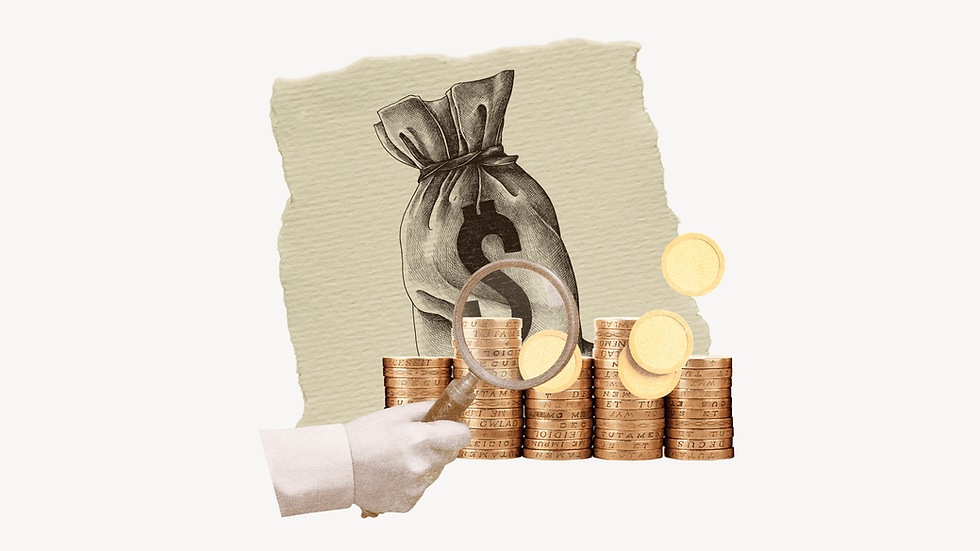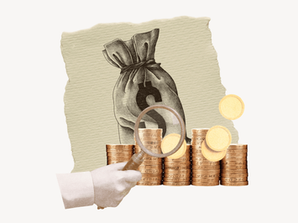Integrated Approach of Halal Industry and Islamic Finance
- asiyakamawal
- Aug 28, 2023
- 4 min read
Updated: Feb 3, 2025

By: Nurhastuty k. Wardhani, Junior Lecturer at Trisakti University
Halal industry has become a trend in the last ten years while the Islamic Finance industry was initiated four decades ago. Despite the lack of integration and collaboration between the Halal industry and Islamic Finance, these industries represent the reality of the current Islamic economics worldwide. However, the strategy of Islamic economics moving forward in many Muslim countries is still unexplored since the Halal industry and Islamic Finance are walking separately. Lack of collaboration and integrated approach between the Halal industry and Islamic Finance has consequences in which the objective of Islamic economics seems unattainable, the stakeholders of the Halal industry and Islamic finance are not satisfied with these industries, and the Muslim population is bigger in terms of quantity but lack of power in making an impact on the global economy.
The Blueprint of Islamic Economics
It is rare to see any Muslim countries state that they have provided any blueprint of Islamic economics. The discussion of Islamic economics at the level of government in Muslim countries is implicit, not explicitly stated. However, some Islamic economists have proposed the definition of Islamic economics. According to Zubair Hasan (2015), "Islamic economics is the subject that studies human behavior about the multiplicity of wants and scarcity of resources with alternative uses to maximize Falah that is the well-being both in the present world and in the hereafter.” In addition to the definition, it is emphasized by Umer Chapra (2008) that Islamic economics promote a balance between individual and social interest and support the Maqasid al-Shariah with two important elements, which are socio-economic justice and the well-being of all God’s creatures. However, the concept of Islamic economics is not translated into government policy, and lack of integration between Halal Industry and Islamic Finance. As a result, there is a significant gap between the practice of Islamic Finance and the halal industry with the objective of Maqasid Syariah.
The Deficit of Trust in Mainstream Economics and Crisis Cycles
Is it too naïve if we expect Islamic Finance as the cure for mainstream economics? Probably not if Islamic finance holds firmly its identity and is not as greedy as it is conventional counterparts. Islamic Finance has the potential to show the beauty of Shariah principles as mainstream economics is having a serious sickness. For instance, mainstream economics is unable to address equity issues by showing the significant gap not only between poor and rich in many countries but also the huge gap in salary between top management and blue-collar more than 8 times. Mainstream economics is also unable to address the externalities issues as it shows that climate changes affect our current reality by having more natural disasters and loss of biodiversity. Perhaps, the worst sickness of mainstream economics is creating a deficit of trust and unavoidable crisis cycles every ten years.
However, the expectation of the Islamic Finance industry has to be diminished. Islamic Finance seems to play defensively in the Global world. On one side, the Islamic financial industry showed that they could survive during the Asian financial crisis of 1997/1998 and the global financial crisis of 2008 due to a lack of exposure to toxic assets while on the side, the top management of the Islamic financial industry as greedy as conventional counterparts as they are focusing on credit creation, particularly in consumerism sector. The Islamic financial industry is still midway in tackling important issues such as financial inclusion and contributing to real sectors. Islamic Finance player is trapped in mimicking conventional finance and producing financial innovation that perhaps is far away from Maqasid Syariah. As a result, some stakeholders are not satisfied with the Islamic financial industry and creating new terms such as Islamic social finance to achieve socio-economic justice via zakat, sadaqah, and waqf. At this point, the Islamic finance industry even does not acknowledge the potential of its strategic partner which is the Halal industry.
The Halal Industry Lacks Promoting the Benefits of Halal
Unlike Islamic Finance, the Halal industry gained positive momentum. The halal brand has become a positive brand in both Muslim and non-Muslim countries covering many sectors such as food and beverage, tourism, pharmacy, etc. The halal industry is driven by the demand power of the Muslim population in the world, which is estimated at 1.6 billion. However, the Halal industry lacks in promoting the potential benefit of Halal to a bigger society. Halal should be defined as not limited to permissible but Halal is a warranty of quality. For instance, Halal food should be recognized as healthy and high-quality food, instead of being permissible food. Halal tourism 3 should be promoted as friendly to families and safe tourism to everyone, instead of being permissible tourism. At the same time, the Halal industry still lacks Muslim producers and Muslim entrepreneurs. At this point, the Halal industry should empower Muslim society from being a target market to being a Muslim producer. Another serious issue about the Halal industry, many producers of the Halal industry are still financing their business by using conventional finance. How do we expect the blessings of Islamic economics if the Halal industry and Islamic Finance are still detached from one another?
.png)









Comments